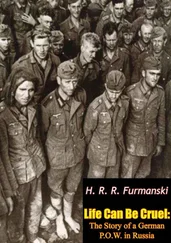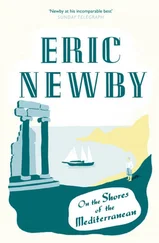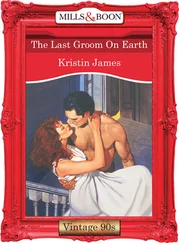After what seemed an eternity in this very unhealthy place, I graduated to the Filing Department where the proofs of the advertisements were kept. Here I had Miss Reidenfelt all to myself when she visited me in search of proofs; but I was much too much in awe of her to take advantage of my hard-won advancement. I found that the white-collar boys in the outer office, where twenty telephones rang incessantly, felt just the same about Miss Reidenfelt as Les, Stan and I had in our more private labyrinth. In a more primitive society Miss Reidenfelt would have been the central figure in a fertility rite and would by now have rated a six-figure entry in the index to ‘The Golden Bough’.
Next I went to ‘Art’, of which I remember little except wearing a smock, being covered with bicycle tyre solution (which ‘Art’ used in gallons), and my surprise, when, after standing for hours being sketched for an advertisement for mass-produced clothes, I found that I had emerged on paper as a sunburned, moustached figure wearing a Brigade Tie and a bowler hat. Long afterwards I cherished the hope that this picture might lure some unwary Adjutant of the Grenadiers into our clients’ emporium, where he would certainly be provided with a very remarkable suit. Julian had had one of them by his desk for some time. He said it inspired him. The canvas used in its construction was so stiff that with a little effort it could be made to stand up alone like a suit of armour.
From Art I moved to the outer office and bought myself some white collars and a more grown-up suit. Here I was in full view of Mr McBean, the Scots Manager, who, with his bald head, horn rims and slightly indignant expression, seemed to swim in his glass-bound office like some gigantic turbot; only the absence of bubbles when he dictated to Miss Rundle showed that Mr McBean breathed the same air as the rest of us. He had a facility shared by fish and London taxis for turning very rapidly in his tracks, and sometimes, thinking myself undetected, I would find him glowering at me from his aquarium. He disapproved of frivolity and my reputation had preceded me when I joined his department.
With such experiences behind me it was easy to believe the Porter when he said I was going to be sacked, and when I went into the main office through the swing doors in the reception counter I was filled with strangely pleasant forebodings. By this time the place would normally have been a babel, but this morning the atmosphere was chilly, tragic and unnaturally quiet. Lettice Rundle was having a good cry over her Remington and the group of young men who handled the Cereal Account were shovelling piles of proofs and stereos into a dustbin and removing their personal belongings from drawers. Years later I was to witness similar scenes in Cairo when Middle East headquarters became a great funeral pyre of burning documents as the Germans moved towards the Delta. But this was my first experience of an evacuation.
It was easy to see that besides myself quite a number of people were about to leave. Those remaining pored over their tasks with unnatural solicitude and averted their eyes from their unfortunate fellows. I had no personal possessions to put together. My hat was in the cloakroom where it had remained for two years. I had never taken it out but sometimes I dusted it, as Mr McBean from time to time checked up on the whereabouts of the more junior and unstable members of the staff by identifying the hats in the cloakroom. This was my alibi; with my hat in its place I was permanently somewhere in the building.
This morning Mr McBean was not in his office. He was not an unkindly man and the decimation of his staff had probably upset him. I went up to Leopold, the bright and intelligent Jew who looked and sounded so much like Groucho Marx that I had once seen him signing the autograph albums of eager fans in the street. He was smoking an enormous Trichinopoly cheroot – the product of one of the smaller accounts which he helped to handle in addition to breakfast food. I asked him what went on.
‘We’ve lost Brekkabitz, dear boy.’
‘I suppose it was your fault, Leo. I must say I thought some of the stuff you put out was positively filthy.’
He removed the cheroot from his mouth and blew a great cloud of smoke in my face. I began to understand why the sales of this particular brand needed all the impetus Wurzel’s could give them. His voice came through the smoke: ‘… And when dear Wurzel went to America he got a very chilly reception. The client didn’t like our handling of the Digestive Tract. Neither did anybody else. Nobody wants to be reminded at breakfast how many feet of gut he’s got. Wurzel stuck out for the last foot.’
‘Statistics show that the average is thirty-nine feet,’ I said.
‘Boy,’ said Leopold eagerly, ‘I am glad to meet you. So you really read the series?’
‘The whole hundred-and-twenty-six of them. I had to in the Checking Department. They made me stick them in a book. They were terrible. They made my flesh creep.’
‘So you’re the only living creature who ever read them…. I disliked them so much I used to look at them with my eyes shut. At any rate, they were a flop and this is the pay-off. We’re all going, even Robbie and Johnny.’
‘What about me?’
‘Unless you received a registered letter with your oven-crisp Brekkabitz this morning you’re still here.’
I looked at Robbie and Johnny. They were calm, a little icy and slightly green about the gills, but this may have been due to the Annual Staff Party which had been held the night before. They too were preparing to leave.
‘Why Robbie and Johnny?’ I asked. ‘Why are they packing up? They handle the Bicycle Account. That’s nothing to do with Brekkabitz.’
‘My boy,’ said Leopold, biting a great soggy chunk off his cheroot, ‘when the heads finish rolling in this place it will look like a field full of swedes.’
‘What about Lettice?’
‘Joke,’ said Leopold. ‘Lettice is just a nice girl with a good heart and she types like a dream. They’ll never sack Lettice. I don’t know what she’ll do without me. It’s a pity that this should happen after such a heavenly party,’ he added.
The Annual Staff Party had been held at a rather raffish roadhouse on a by-pass. With its peeling stucco, bulbous thatched minarets and empty jars of liquid soap over the basins in the washroom, it still holds for me, in retrospect, the essential uneasy spirit of the thirties. We arrived at the road-house after a treasure hunt in motor cars to find that the whole place had been reserved for Wurzel’s. People who had driven out for dinner were being turned away.
It had not been a lively evening. Sporadic outbursts of drunkenness were extinguished early. Only Leopold had really enjoyed himself. He had appeared dressed as a waiter in a loathsome greasy suit of tails; the service was so dilatory and the food so bad that he managed to serve the Managing Director with a leg of chicken made of plaster of paris without being detected. Mr McBean had been grateful to find a large helping of smoked salmon on his plate, but this proved to be skilfully fashioned from a rubber bathmat with ‘Welcome’ in white letters on the reverse side.
When the tables were cleared the Managing Director had risen to his feet. He was shiny and palm-beach-suited. In office hours he was disagreeable; now, filled with wary bonhomie, he was unspeakable. He began his speech by referring to us as ‘Boys and Girls’, at which a premonitory and quite audible shudder ran through the assembly. He went on to regret the absence of Mr Wurzel, our Chairman, who had unexpectedly been called away. Although, he said, we had made progress in the last year, we might have to draw in our horns and retrench in the very near future.
Читать дальше












